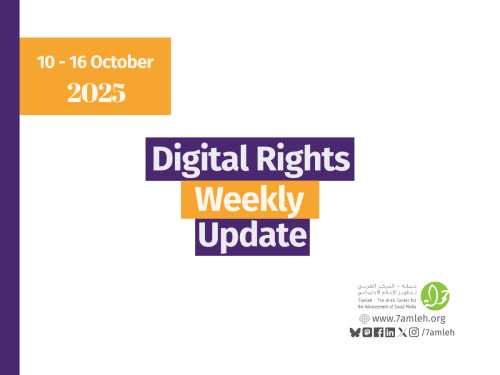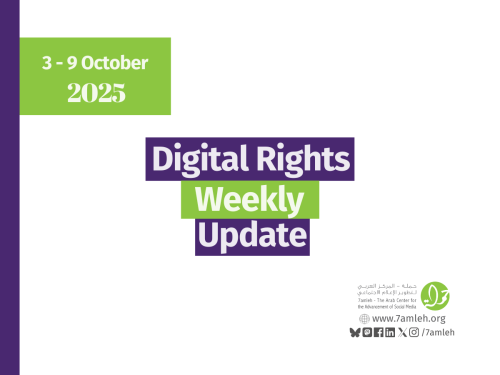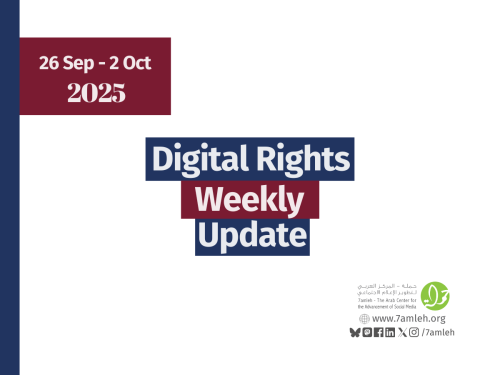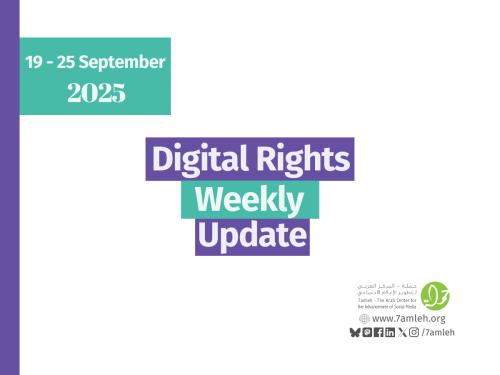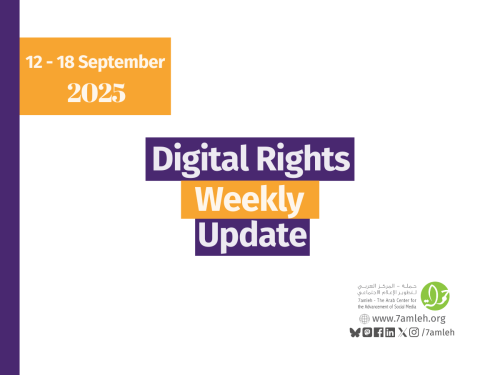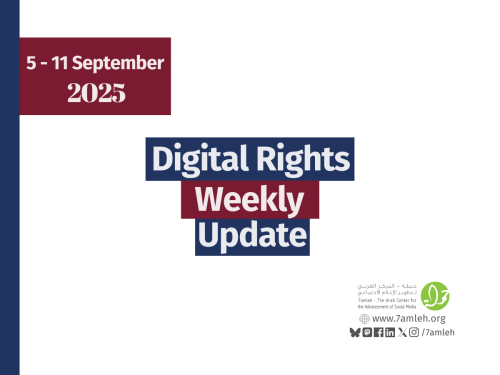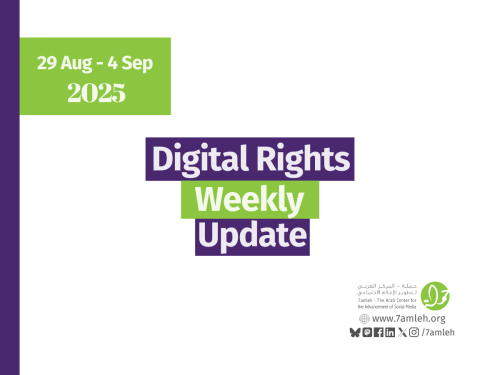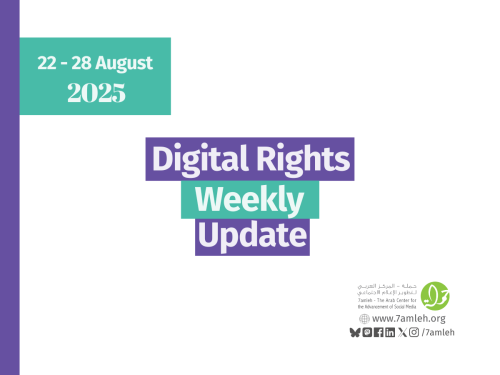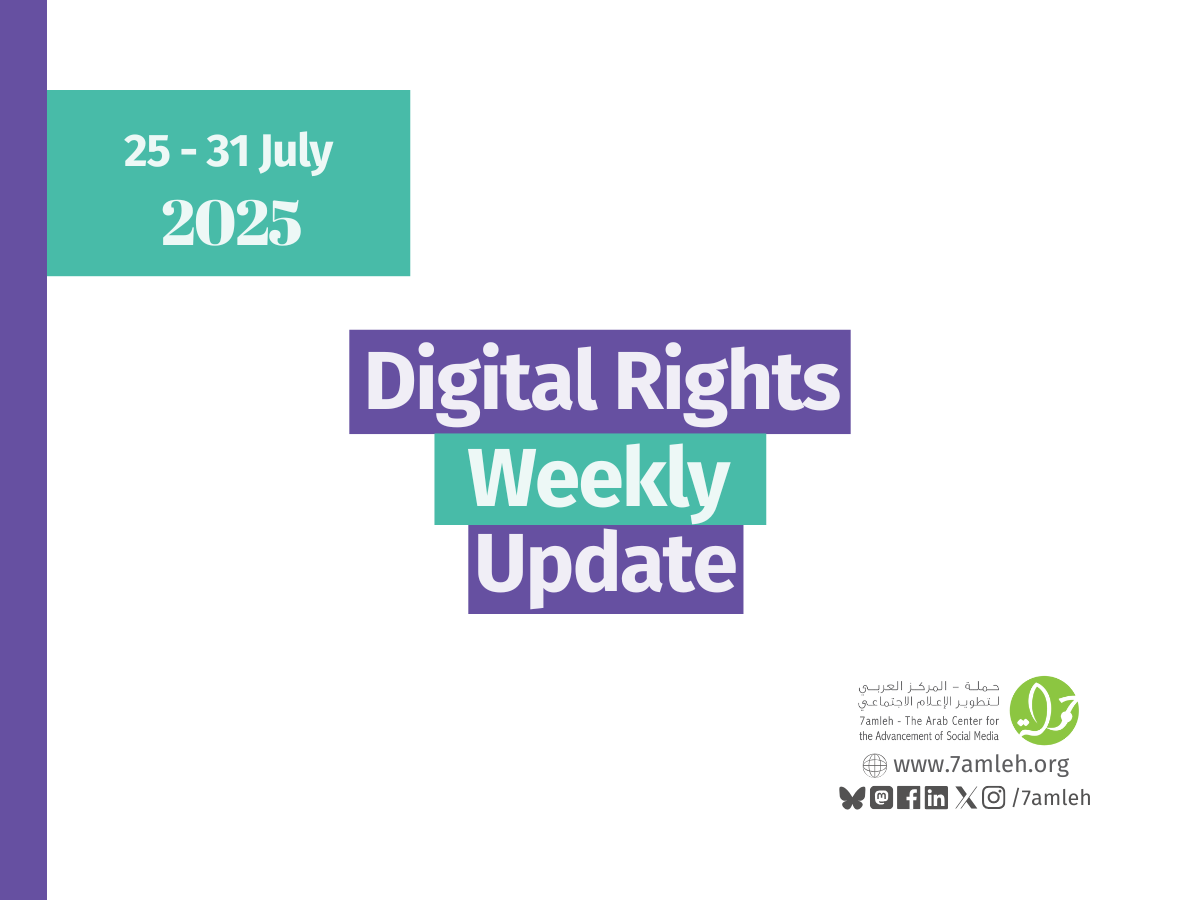
GoFundMe Must Stop Blocking Lifesaving Fundraising Campaigns to Gaza
7amleh
As the humanitarian crisis amidst the Genocide in Gaza reaches catastrophic levels, we, the undersigned civil society organizations, condemn GoFundMe’s systematic restrictions on Palestinian fundraisers. Crowdfunding has become one of the only remaining avenues for civilians to access lifesaving aid. Yet GoFundMe, the world’s largest crowdfunding platform, has been repeatedly shutting down or restricting fundraisers for Palestinians, depriving families, mutual aid groups, and grassroots initiatives of urgently needed funds. These actions, taken in the midst of a famine and an ongoing military campaign that has already killed tens of thousands, are not only discriminatory, they are deadly. As UNRWA warns that over one million children are suffering from hunger due to the Israeli blockade, and there have been thousands of documented cases of severe malnutrition, it is unconscionable that GoFundMe continues to block humanitarian aid payments to starving Gazans.
Ex-Israeli army instructor hired as TikTok's new 'hate speech manager'
The Cradle
TikTok has hired a former Israeli army instructor to oversee the popular application’s hate-speech policy, the company told Jewish Insider earlier this week. Erica Mindel is also a former US State Department contractor who worked for Deborah Lipstadt, special envoy to combat antisemitism under the government of former US president Joe Biden. She will “develop and drive the company’s positions on hate speech” and “influence legislative and regulatory frameworks,” as well as “analyze hate speech trends” with a specific focus on antisemitism. Prior to working at the State Department, Mindel was an instructor in the Armored Corps of the Israeli army’s Spokesperson’s Unit. She served in the Israeli military for two years. Social media users slammed her appointment as an attempt to stifle pro-Palestinian voices on TikTok.
Unlocking Digital Power: New Study Reveals Hidden Opportunities for Palestinian Freelancers
Leaders International
A new study under the DigiWork project has revealed a powerful and largely untapped force driving the future of Palestine’s digital economy: its freelance talent. Drawing on insights from 91 freelancers, 13 global employers, and 19 local digital agencies across Gaza, the West Bank, and the diaspora, the research highlights both the promise and the pressing challenges facing Palestinian digital workers. Palestinian freelancers are increasingly entering saturated markets like general web development, where competition is fierce and income remains modest. In contrast, high-demand and high-income digital fields such as digital marketing, AI and machine learning, UI/UX design, and data analysis remain significantly underrepresented. The mismatch is striking. While 85 percent of global employers surveyed are seeking digital marketing skills, only 8 percent of freelancers currently offer them. These overlooked sectors command hourly rates between $45 and $160, compared to just $10 to $25 in oversubscribed fields. With 18 percent of freelancers at the beginning of their careers and nearly 40 percent having only two to five years of experience, targeted investment in upskilling could unleash exponential growth.
ADL-Backed Bipartisan Bill Threatens to Censor Israel Criticism on Social Media
Common Dreams
The bill’s lead sponsors described it as part of an effort to prevent antisemitic hate. But their comments during a press conference on the measure suggest it will also target critics of Israel. Free speech advocates are raising concerns that a new bipartisan bill would force social media companies to censor criticism of Israel on their platforms. Reps. Josh Gottheimer (D-N.J.) and Don Bacon (R-Neb.) rolled out the bill, called the Stopping Terrorists Online Presence and Holding Accountable Tech Entities (STOP HATE) Act, at a press conference Wednesday, alongside Jonathan Greenblatt, the CEO of the Anti-Defamation League (ADL). The bill would mandate that social media companies work with the federal government to implement moderation policies that curb the speech of groups the government designates as "terrorists." They'd be required to provide regular reports to the U.S. attorney general. Those that don't comply would be fined $5 million each day they refuse.
Tweeting Solidarity Across Borders: A Social Network Analysis of pro-Palestinian Activism
Arab Media & Society
This research seeks to identify influential online actors on X and study the thematic narratives in the digital public sphere, with a specific focus on communications pertaining to Palestinian protests. In challenging the mainstream narratives propagated by traditional media outlets in some Western countries, the global proliferation of digital media has facilitated the empowerment of underrepresented groups during the Gaza war in 2023. Against this backdrop, this research paper examines the role of X (formerly Twitter) in shaping the digital public sphere during the transnational pro-Palestine protests. The significance of the study lies in understanding the power of digital media in echoing the voices of influential online actors who diffuse information, document events, organize protests, and foster global solidarity for Palestine. Using a mixed-methodological approach, this research quantitatively examines 11,351 X posts that contain keywords relating to pro-Palestine protests, which were extracted using NodeXL Pro. Additionally, it qualitatively analyzes the content shared by the top 30 influencers. The results indicate that some traditional media organizations extend their roles as influencers into the digital environment. However, several activists and concerned citizens from diverse nationalities also actively shape narratives and positively portray the pro-Palestine protests.
Related Articles
Subscribe to Our Email Alerts
And stay updated with our latest activities, news, and publications!

